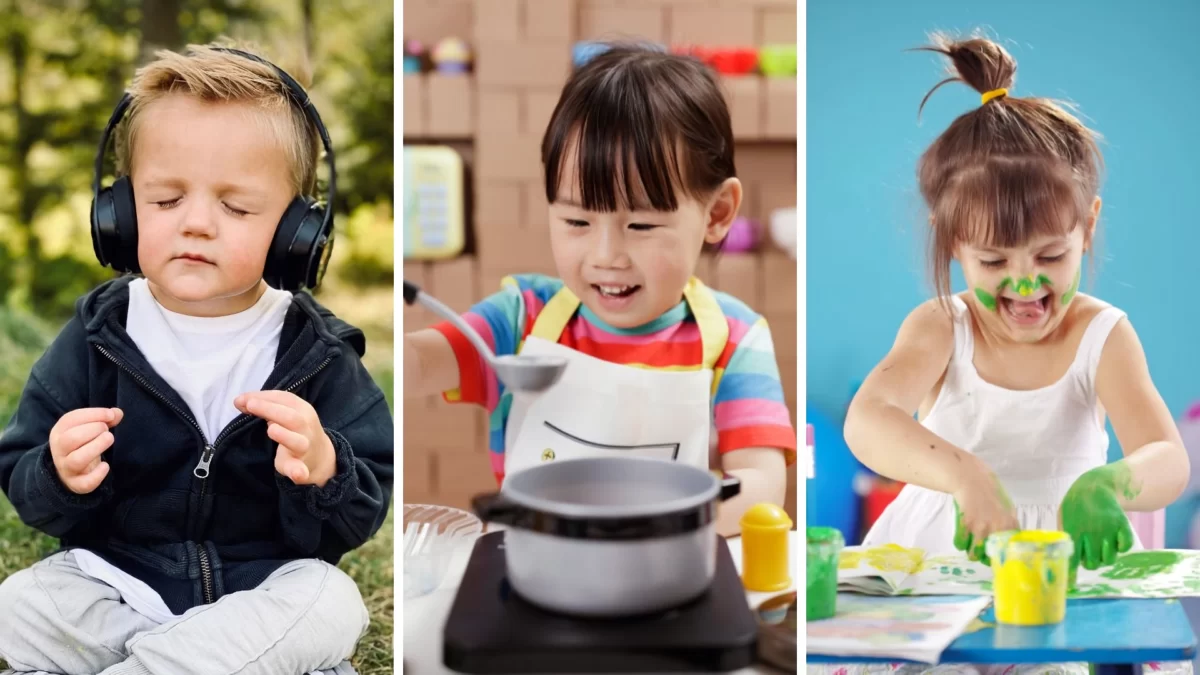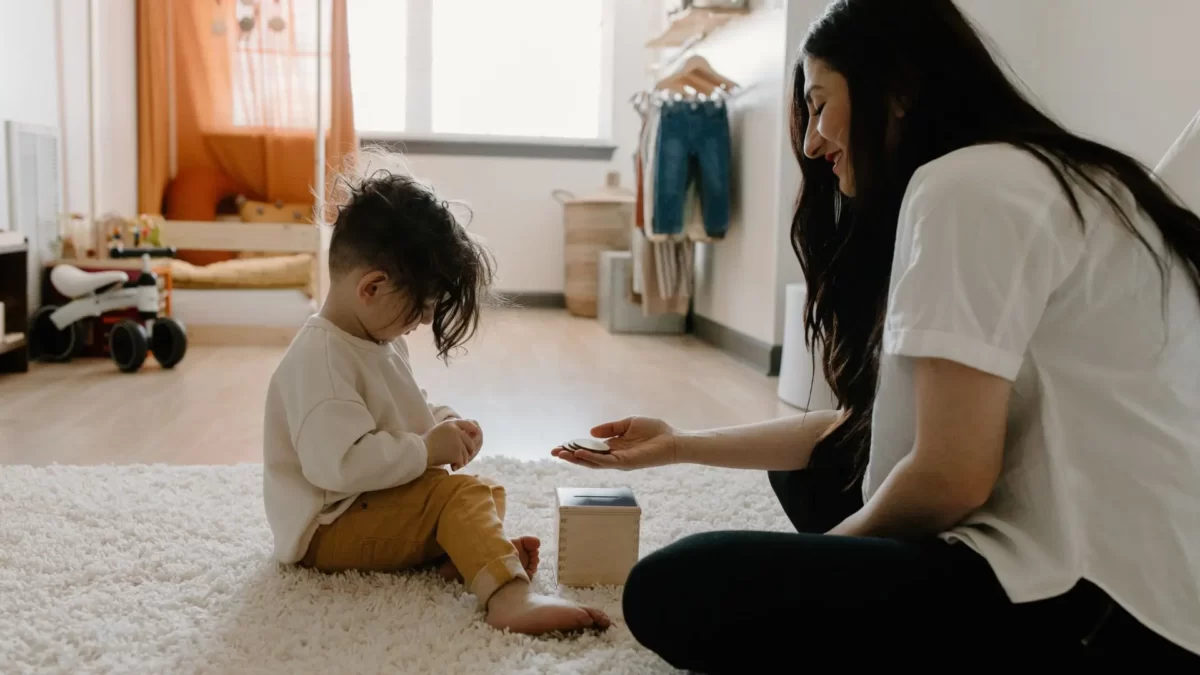Learn about the principles of Montessori education, the pedagogical teachings that María Montessori left as a legacy for the development of creative and transforming human beings.
In the Montessori educational model we see children with love and respect, always trying to give them confidence and freedom. As a community, our intention in sharing with you the principles of Montessori education is so that we can continue to accompany the little ones in each of their spaces and that they serve as applicable advice in your parenting model and family dynamics.
8 Fundamental Principles of Montessori Education
1.- Respect for the nature of the child
Within the principles of Montessori education, one of the most valuable is precisely to respect the nature of children, in fact, the rest of the principles are built on this foundation.
Historically, María Montessori was one of the first educators to stop seeing minors as mere receptacles of information, her philosophy supports the child as an individual with a born capacity to learn, in their own way, through exploration, manipulation, curiosity and play!
If we transcend with this thought of the educational to the day to day and we think about it reflexively, Should there be any difference between an adult's respect for a minor and a minor's respect for an adult? In this regard, our society (but not necessarily within the home) tends to be adultcentrist, that is, not enough space or value is given to the wonderful internal world of the little ones.
The message that we really should convey is to treat all people with respect. Therefore, it is essential equally include children, both in the respect they give and the respect they receive. By doing so, we will be a great role model for them, who will learn to be understanding and kind to others. And at the same time we will be forging their self-esteem and teaching them that they are valuable and deserving of respect.
2.- Children need movement.
Movement is closely linked to thought, it drives it, and in turn, thought leads to learning.
Now, with children spending more time than ever before immobile in front of technology, we should consider this principle. Movement is a must the development of the mind is connected with it; without movement there is no progress or mental health.
The purpose of the movement is, in the words of Dr. Montessori, "to serve all life and the spiritual and universal economy of the world"[1], therefore, mental life should not be considered separately from physical life .
[1] The absorbing mind, p. 185
Allowing children to explore their environment with freedom of movement encourages their desire to know and, through this interest, they receive information. When they find something they like, creative energy is born that leads them back to action and in this way they get to know themselves and build themselves.
3.- Freedom and self-control.
When children have freedom they are able to know self-control and that generates well-being and self-confidence.
For the Montessori method, freedom and discipline go hand in hand, but it is not promoted in an authoritarian way, but rather intrinsically. When the child feels free (of thought, action and expression) his internal potential drives himBy concentrating and getting involved in his interests and in the practice of them, he achieves control of his movements and emotions; conquering the will that forges responsibility in them.
In parenting, this point can be particularly challenging, since culturally we are accustomed to the belief that children must be given instructions (orders) all the time to achieve a result, however, nothing could be further from the truth. Human beings never lose the capacity for internal choice, our freedom of learning, which is why Congruence is essential when guiding children, since only they will choose from where they acquire learning... from our words or our actions.
4.- Follow one's own interest.
The best way to achieve deep learning is through the self-interest of each child. By allowing them to explore what they like, in addition to improve their comprehension and concentration, develop independence and will.
Children become the protagonists of their own development, they learn their own pace and style of learning, their strengths, their weaknesses, their confidence and their inner discipline. They explore their cognitive and constructive abilities For wanting to be and not for having to be! Isn't that what we also aspire to in life?
To follow his own path of development, the child needs freedom, but always in a prepared environment where he can make choices that are appropriate to his needs. They are free elections in a prepared environment.

5.- The best reward is internal.
Allowing them to enjoy their achievements and experience making mistakes, as a way of learning and not as a failure, helps them build good self-esteem and a sense of responsibility.
Error control within the Montessori method reveals the importance of the child discovering for himself his mistakes and successess, In this way, the participation of the adult in the daily life of the child is not focused on highlighting a mistake or a success. Not even through positive reinforcement and praise.
The objective is to give value to children's autonomy, this is achieved through a prepared environment. Where, the child, through his capacity for observation and experimentation, achieves relevant objectives in his process, which feeds internal motivation from an early age. Avoiding future limiting beliefs about making mistakes or doing things just to get some external reward.
6.- We are your guides.
By breaking down the authoritarian hierarchy, without losing responsibility for each role, we can appreciate and respect our children's innate ability.
As adults, our role is to accompany the child, allowing their natural development and facilitating learning. For this, observation is essential, since through it, as guides, we can offer children better options so that they continue to develop with the intention of reducing our intervention more and more until they achieve their autonomy.
As guides there are two fundamental attitudes in which to work at all times: humility and responsibility.
Humility
- Recognizing that the child is the protagonist of learning and, therefore, that the adult does not teach, he only offers the means.
- Accepting your own mistakes and those of others as a learning opportunity.
- Establishing a horizontal relationship with the child, based on respect.
- Whenever she is willing to learn, for the child, with the child and from the child.
The capacity of responsibility:
- Identifying the individuality of each child.
- Keeping the environment prepared and offers activities at the right time and with the right technique.
- Every time you reflect on your own work and look for ways to improve it.
- By responding from calm, instead of reacting.
7.- Learn in community.
In real life we rarely meet people our own age, in almost any social situation, possibly this only happens in conventional schools. When there is a coexistence of mixed ages, especially among children, many benefits are obtained for both individual and collective development.
"It is a real lesson, since the mentality of the five-year-old is so close to that of the three-year-old, that the little one easily understands what we will not be able to explain to him"
María Montessori "The Absorbent Mind" Page 285 Diana, Mexico
There is mutual help, the little ones look at the big ones and ask for help, competition naturally disappears. Children develop social community learning, altruism, and a willingness to help. Enriching social interactions, promotes respect, tolerance and solidarity.
8.- Orderly environment = orderly mind.
External order promotes clarity of thought and concentration, as well as giving them a sense of security.

For the Montessori method, the environment is a wide and open place, orderly, aesthetic, simple and real, where each element has its reason for being in the development of the child. If the environment where the child develops, there is a clear understanding of what exists and how it works, this allows him to explore freely cultivating his autonomy and self-discipline.
And as you may have realized throughout this entire article, creating an orderly and prepared environment is essentially our primary function as guides. Therefore, the most responsible thing we can do is adapt the house to the size, needs and interests of the child, not only so that the children are more responsible with their things and are more orderly, but also to make them feel included in the place where they live.
"The child is the father of the man", said Dr. Montessori, since it is the child who creates himself, revealing the person he can become. This transformation is his main task, an intense and incessant task that he carries out naturally and with immense joy. Maria Montessori argued that the joy of the child should be taken as an indicator of the successes.
Which of the principles of Montessori Education is your favourite? How do you think you can apply them in your home?
The principles of Montessori Education are supported by scientific research (Montessori. The Science Behind Genius, Angeline Stoll Lillard, 2005, Oxford University Press)
